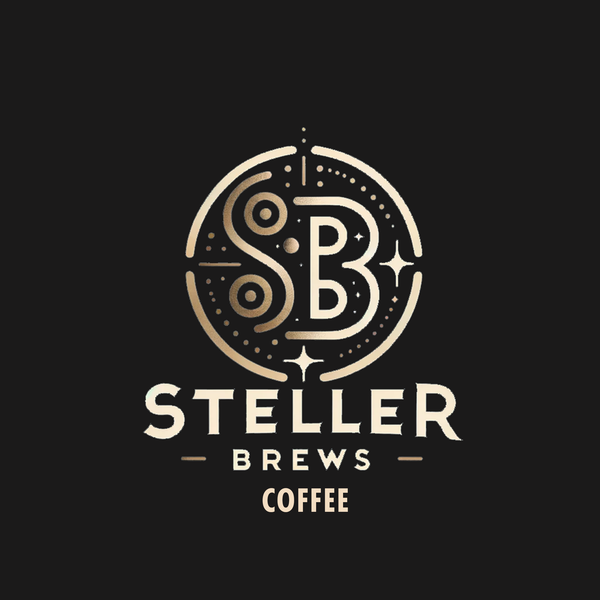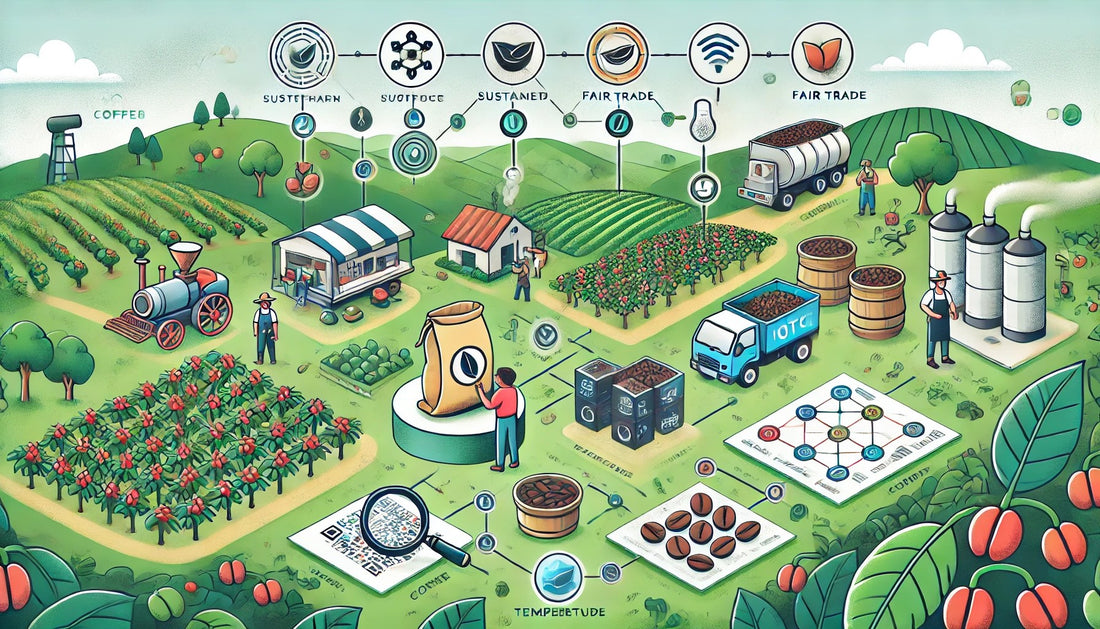Blockchain technology offers a powerful solution for enhancing transparency and traceability in the coffee industry. By providing an immutable, decentralized ledger for recording transactions, blockchain ensures that every step of the coffee supply chain is visible and verifiable. In this article, we'll explore the key components of a blockchain system, the steps to implement it, the challenges to overcome, technological innovations, and real-world applications.
Key Components of a Blockchain System
Implementing blockchain in the coffee supply chain involves several crucial components:
-
Digital Ledgers and Nodes:
- Digital Ledgers: A blockchain is essentially a digital ledger that records every transaction in the supply chain. Each transaction, or block, is linked to the previous one, forming a continuous chain that is immutable and transparent.
- Nodes: These are individual computers that maintain a copy of the blockchain. Each node participates in the verification and recording of transactions, ensuring the decentralized nature of the system.
-
Smart Contracts:
- Definition: Smart contracts are self-executing contracts with the terms of the agreement directly written into code. They automatically enforce and verify the terms of a contract when certain conditions are met.
- Role in Coffee Supply Chain: In the coffee industry, smart contracts can ensure that payments are released to farmers only when the product meets specific quality standards, thus enforcing fair trade practices without the need for intermediaries.
-
IoT Integration:
- Internet of Things (IoT): IoT devices can collect real-time data on the conditions of coffee storage and transportation, such as temperature and humidity levels.
- Blockchain Connection: This data can be recorded on the blockchain, providing real-time visibility into the supply chain and ensuring that conditions are maintained to preserve coffee quality.
Steps to Implement Blockchain for Coffee Traceability
-
Assessing the Current Supply Chain:
- Evaluation: Begin by assessing the current state of the supply chain. Identify key points where data needs to be collected and verified, such as farming practices, processing methods, and distribution channels.
- Stakeholder Involvement: Engage all stakeholders, including farmers, processors, distributors, and retailers, to understand their needs and capabilities.
-
Choosing the Right Blockchain Platform:
- Platform Selection: Choose a blockchain platform that fits the specific requirements of the coffee supply chain. Popular options include Ethereum for its smart contract capabilities and Hyperledger Fabric for its permissioned network features.
- Customization: Customize the platform to handle specific data types and transactions relevant to the coffee industry.
-
Training and Onboarding Stakeholders:
- Education: Provide training sessions for all stakeholders to ensure they understand how to use the blockchain system effectively.
- Support: Offer ongoing support and resources to address any issues and ensure smooth implementation.
Overcoming Implementation Challenges
-
Managing Costs and Investments:
- Initial Investment: Implementing blockchain technology can be costly. It's important to plan for initial setup costs, including hardware, software, and training.
- Long-term Savings: Emphasize the long-term benefits of blockchain, such as reduced fraud, improved efficiency, and increased consumer trust, which can offset initial investments.
-
Standardizing Data Input:
- Consistency: Develop standardized protocols for data entry to ensure consistency across the supply chain. This includes defining data formats and establishing clear guidelines for recording transactions.
- Verification: Implement mechanisms for verifying data accuracy at each stage of the supply chain.
-
Encouraging Adoption Among Smallholder Farmers:
- Incentives: Provide incentives for smallholder farmers to adopt blockchain technology, such as access to premium markets or higher prices for verified products.
- Accessibility: Develop user-friendly tools and interfaces to make it easier for farmers to participate in the blockchain system.
Technological Innovations in Blockchain for Coffee
-
Smart Contracts for Fair Trade:
- Automation: Smart contracts can automate and enforce fair trade agreements, ensuring that payments are made promptly and that quality standards are met.
- Transparency: By making contract terms visible and verifiable, smart contracts enhance trust and accountability among all parties.
-
IoT Devices for Real-time Monitoring:
- Sensors: Use IoT sensors to monitor environmental conditions during storage and transportation. This data can be recorded on the blockchain to provide real-time visibility and ensure optimal conditions are maintained.
- Alerts: Implement alert systems to notify stakeholders of any deviations from optimal conditions, allowing for prompt corrective action.
-
Digital Passports for Coffee Beans:
- Traceability: Assign digital passports to coffee beans, recording their journey from farm to cup. This includes details on origin, processing methods, and quality tests.
- Consumer Engagement: Provide consumers with access to this information via QR codes, enhancing transparency and building brand loyalty.

